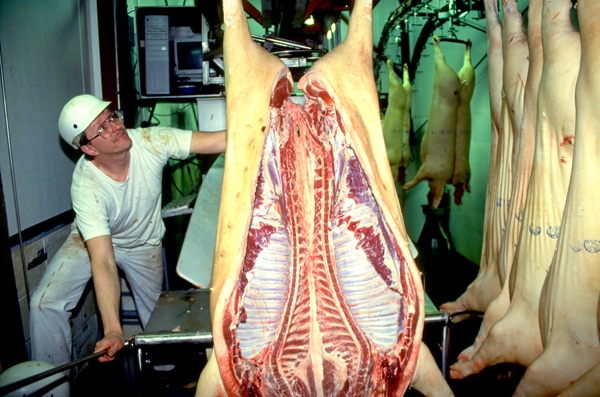February 11, 2013

On Friday, American Meat Institute (AMI) President J. Patrick Boyle wrote Agriculture Secretary Tom Vilsack to remind him of USDA’s legal obligations to provide meat inspection even under sequestration. Boyle sent the letter in response to comments made by USDA to media that sequestration would result in an across-the-board furlough of as much as 15 days for all Food Safety and Inspection Service (FSIS) employees, including inspectors.
In the comments, USDA also said that production will shut down for that time period, impacting approximately 6,290 establishments nationwide and costing roughly over $10 billion in production losses. USDA further told reporters that industry workers would experience over $400 million in lost wages and that consumers would experience limited meat and poultry supplies and potentially higher prices.
“We agree with the assessment that furloughing inspectors would have a profound, indeed devastating, effect on meat and poultry companies, their employees, and consumers, not to mention the producers who raise the cattle, hogs, lamb and poultry processed in those facilities,” Boyle says.
“AMI respectfully disagrees with the department’s assertion in that, in the event of sequestration, the furloughs referenced are necessary and legal. The Federal Meat Inspection Act and the Poultry Products Inspection Act (the Acts) impose many obligations on the inspected industry, which we strive to meet. Those acts, also however, impose an obligation on the department – to provide inspection services.”
Boyle notes that a significant percentage of the Food Safety and Inspection Service’s (FSIS) budget goes to personnel salaries, but not all of those funds are used to pay the inspectors necessary to allow establishments to operate.
“Rather than impose across-the-board furloughs that will lead to plant closures, it is incumbent upon the department to examine the options available to it, e.g., suspending certain non-essential programs and furloughing non-essential personnel within the 13 different offices (only one of which involves inspectors in plant) that make up FSIS,” he wrote.
“Such an approach would enable FSIS to meet its obligations under a sequestration scenario and satisfy its statutory obligation to provide inspection pursuant to the acts,” he concludes.
“By doing so, the department would avoid inflicting unnecessary hardship on the more than 500,000 people who work in the meat and poultry industry and the more than one million livestock and poultry producers whose livelihoods also depend on those plants operating, and would also disrupt supplies to the 95% of Americans who make meat and poultry a nutritious part of their diets.”
To view the complete letter, click here.
You May Also Like



